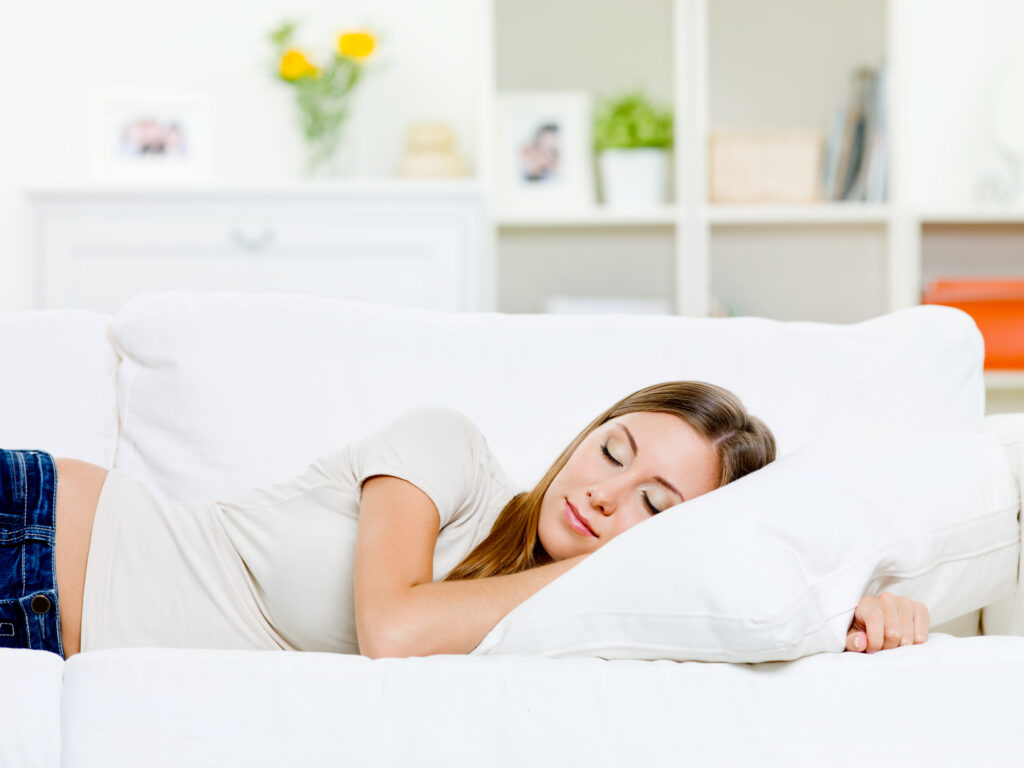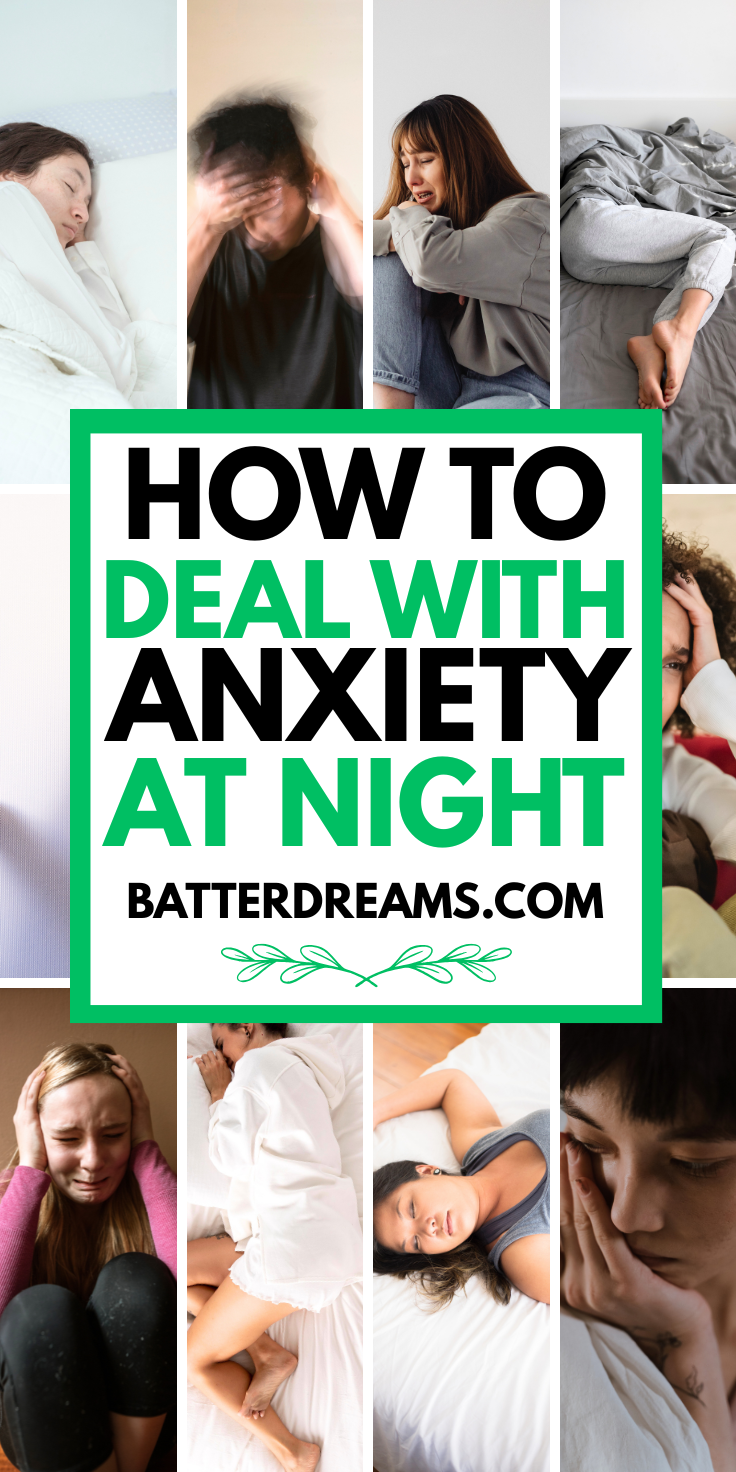How to Deal With Anxiety: Managing anxiety to improve sleep involves creating a calming bedtime routine and adopting healthy sleep habits. Here are some strategies that may help.
01. Establish A Restful Bedtime Routine.
- Engage in calming activities before bedtime, such as reading a book, taking a warm bath, or practicing relaxation techniques.
- Avoid stimulating activities, like watching intense movies or engaging in heated discussions, close to bedtime.

How To Sleep With Anxiety
02. Create a Comfortable Sleep Environment.
- Keep your bedroom dark, quiet, and cool.
- Invest in a comfortable mattress and pillows.
- Consider using blackout curtains and white noise machines if needed.

03. Limit Screen Time.
Reduce exposure to screens (phones, tablets, computers) at least an hour before bedtime, as the blue light emitted can interfere with the production of the sleep hormone melatonin.

04. Mindfulness and Relaxation Techniques.
- Practice deep-breathing exercises or progressive muscle relaxation to calm your mind and body.
- Consider mindfulness meditation or guided imagery to help shift your focus away from anxious thoughts.

05. Limit Stimulants.
Avoid consuming caffeine and nicotine close to bedtime, as they are stimulants that can interfere with sleep.

06. Establish a Consistent Sleep Schedule.
Go to bed and wake up at the same time every day, even on weekends. Consistency helps regulate your body’s internal clock.

07. Physical Activity.
Engage in regular exercise, but try to finish intense workouts at least a few hours before bedtime. Exercise can help reduce anxiety and promote better sleep.

08. Limit Naps.
If you need to nap, keep it short (20-30 minutes) and avoid napping too close to bedtime.

09. Evaluate Your Diet.
- Avoid heavy meals close to bedtime, but a light snack may be helpful.
- Consider foods that promote sleep, such as those rich in tryptophan (e.g., turkey, dairy, nuts).

10. Seek Professional Help.
If anxiety persists and significantly impacts your sleep, consider seeking professional help from a therapist or counselor.

Remember, what works for one person may not work for another, so it may take some trial and error to find the strategies that work best for you.
If anxiety and sleep issues persist, consulting with a healthcare professional is advisable. They can provide personalized guidance and may recommend additional interventions if needed. More


1 thought on “How To Deal With Anxiety At Night”